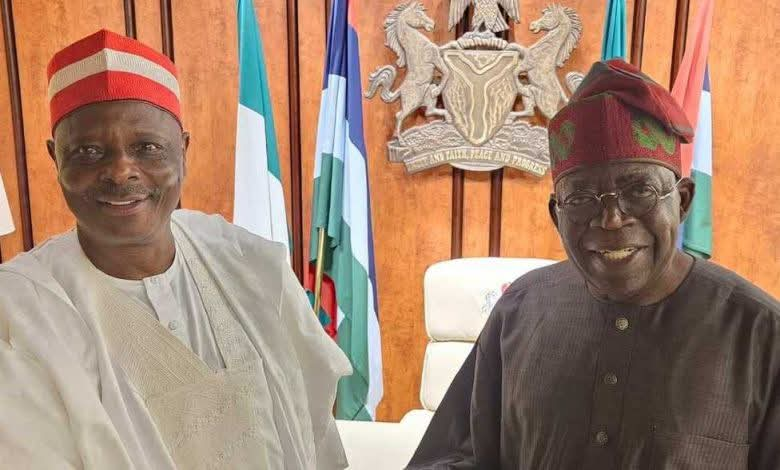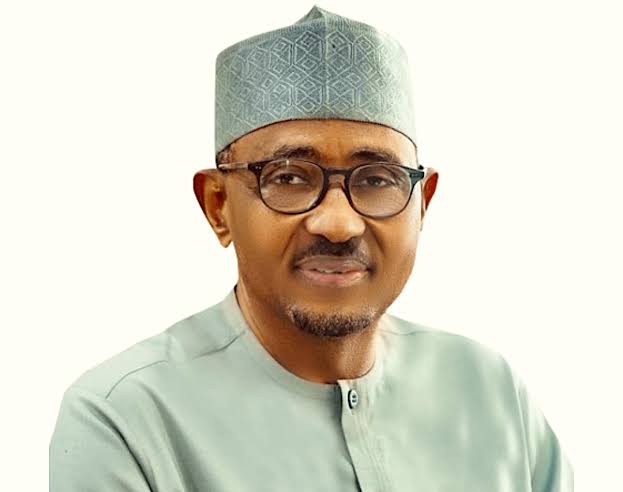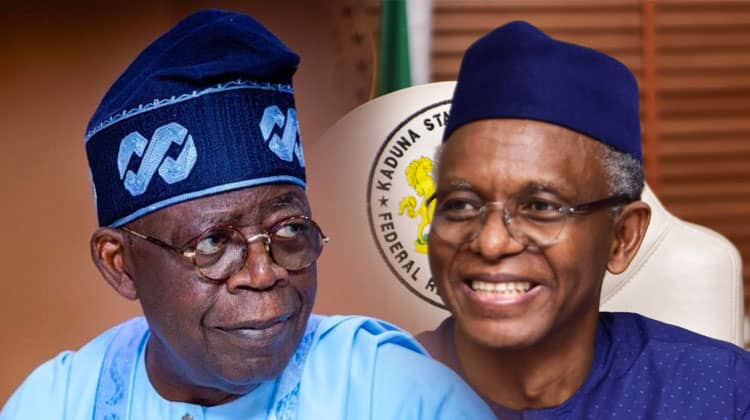President Bola Ahmed Tinubu is reportedly weighing the possibility of selecting Rabi’u Musa Kwankwaso as his running mate for the 2027 presidential election, a move that could see Vice President Kashim Shettima replaced on the ticket, according to insider accounts from political circles in Abuja.
The development, which remains unofficial, has triggered widespread speculation within the All Progressives Congress (APC) and across the broader political landscape. Sources familiar with the matter have revealed that Tinubu’s political strategists are actively courting Kwankwaso to rejoin the ruling party. The former Kano State governor and national leader of the New Nigeria Peoples Party (NNPP) is seen as a critical figure with the potential to bolster the APC’s chances of retaining power in the next general election.
A source close to the presidency told Business Day that President Tinubu has already met with Kwankwaso in a bid to secure his political partnership ahead of 2027. The source emphasized Kwankwaso’s continued dominance in northern politics, especially through the influential Kwankwasiyya movement, which retains significant grassroots support across the North-West.
“Kwankwaso is being wooed to return to the party and has already visited the President,” the source confirmed. “He has what the President and our party need to ensure smooth re-election for President Bola Tinubu.”
Further indications of internal political shifts emerged during a recent stakeholders’ meeting in Gombe State. APC National Chairman Abdullahi Ganduje, a long-time political rival of Kwankwaso in Kano, notably refrained from endorsing Vice President Shettima for a second term. Observers believe Ganduje’s silence may signal tacit approval of the new realignment or at least a strategic withdrawal to accommodate ongoing negotiations.
Kwankwaso, a former Minister of Defence and senator for Kano Central, commands considerable political influence, particularly in Kano State, which has the second-largest number of registered voters in the country. In the 2023 general elections, Kano had over 5.9 million registered voters, making it a critical battleground for any serious presidential campaign.
Though the NNPP placed fourth in the 2023 presidential race, the party’s control of Kano State and Kwankwaso’s enduring popularity have made him a valuable political asset. Tinubu’s inner circle is reportedly banking on these strengths to consolidate the APC’s grip on the region and expand the party’s appeal ahead of the next election cycle.
The strategic discussions around Kwankwaso’s possible entry into the APC come amid rising opposition coordination. Several major opposition figures are engaged in talks aimed at forming a unified political front to challenge Tinubu in 2027. This group, which includes Atiku Abubakar of the Peoples Democratic Party (PDP) and Peter Obi of the Labour Party, is reportedly spearheading efforts to register a new political party named the All Democratic Alliance (ADA).
The coalition backing the ADA includes prominent political veterans such as former Senate President David Mark, ex-APC National Chairman John Odigie-Oyegun, and former governors Rauf Aregbesola, Nasir El-Rufai, and Aminu Tambuwal. Others involved include Babachir Lawal, a former Secretary to the Government of the Federation, and Abubakar Malami, the immediate past Minister of Justice.
Due to differences over merging into an existing party, the opposition leaders have opted to launch a fresh platform. A 15-member Platform Committee has reportedly been established to oversee the ADA’s registration process with the Independent National Electoral Commission (INEC).
Political analysts suggest Tinubu’s outreach to Kwankwaso is a preemptive response to these opposition maneuvers. The president is believed to be strengthening his northern alliances to counterbalance any future threats posed by a unified opposition, particularly if Atiku and Obi decide to join forces under the ADA banner.
As of now, neither President Tinubu nor Kwankwaso has made any public statements confirming or denying the reported discussions. However, the ongoing political realignments and silence from key APC figures, such as Ganduje, indicate that serious internal recalibrations are underway.
If Kwankwaso were to accept a return to the APC and secure a place on the presidential ticket, it would represent a significant reshaping of Nigeria’s political terrain. It could also signal a major pivot in Tinubu’s 2027 campaign strategy, aimed at maximizing northern support and neutralizing opposition gains in crucial regions.
The situation remains fluid, and the next several months may be critical in determining whether this proposed alliance becomes a defining feature of Nigeria’s next electoral contest.





